Animators say ‘AI isn’t going to get you an Oscar’
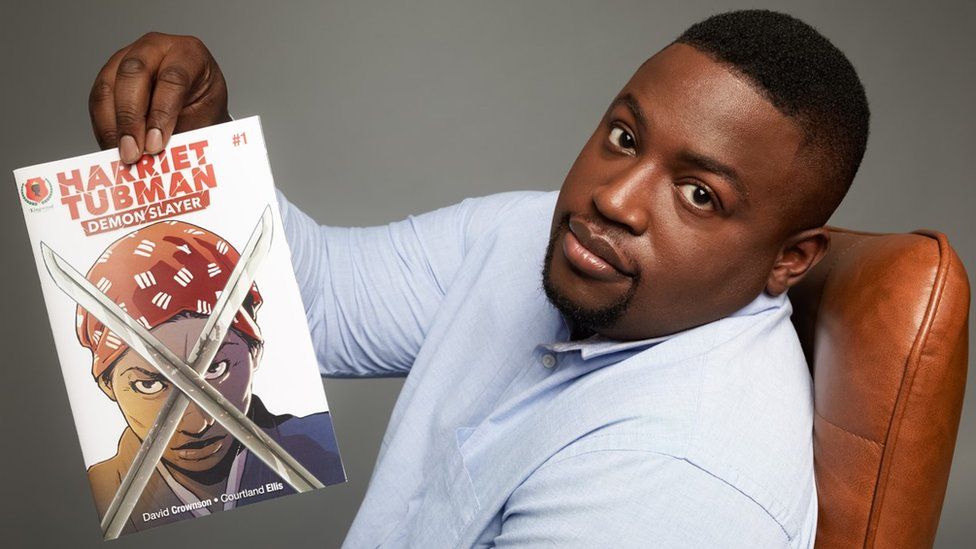
Comic book writer David Crownson is fearful that artificial intelligence (AI) is “going to put a lot of people out of work” in his industry.
“With studios and big-name publishers looking for ways to save money and cut corners, they will no doubt use AI technology,” he says.
As the growth of AI surged to prominence last year, writers and illustrators of comic books and animations continue to be particularly concerned about its potential impact on them.
After all, AI can produce digital images in seconds, images that wouldn’t look out of place in a graphic novel. At least to those of us with untrained eyes. And AI can write stories too.
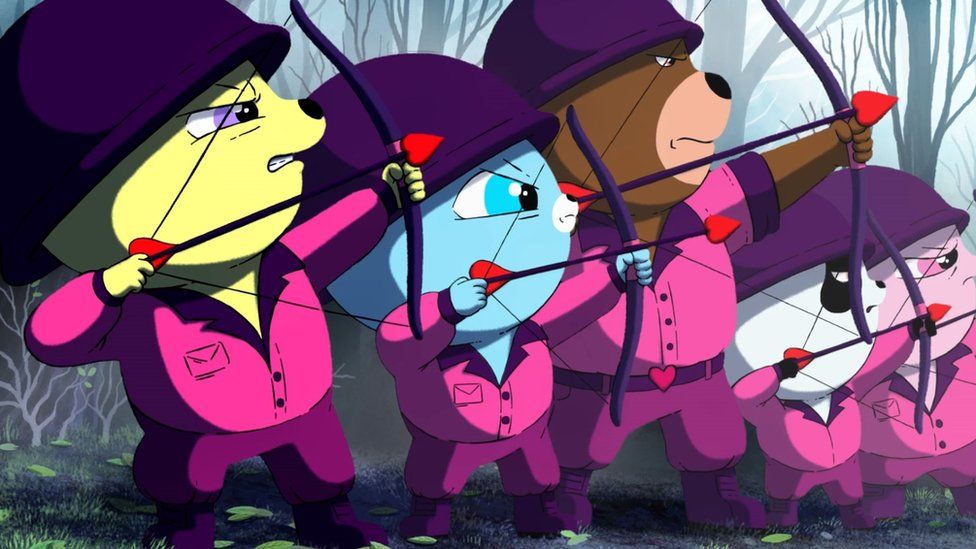
With a small but fast-growing number of AI-made comics and animated TV programmes already released commercially, the technology could transform the industry.
There is a lot of money involved – the global comic book market is worth an estimated $15.5bn (£12.2bn) a year, while the animated industry is 25 times bigger, at $411bn.
New Jersey-based Mr Crownson is also the boss of publisher Kingwood Comics, which focuses on both promoting black writers, and releasing comic books with black characters.
“Now I have to compete with an AI user who can produce faster content,” he says. “Also, a white person could tell his AI to create an action adventure comic with black characters.”
Mr Crownson points to a similar development that has already happened in the clothing industry, where jeans giant Levi admitted last year to using AI to artificially create photos of black models.
He adds that he is fearful that it may lead to a lot of unemployed comic book writers who come from an ethnic minority background. “AI is dangerous to the employment of black artists,” he says.
AI can never replicate the quality of humans when it comes to storytelling, argues Shawnee Gibbs. Working with her twin Shawnelle, the Los Angeles-based sisters have written graphic novels for Marvel Comics and Harper Collins, and animations for Cartoon Network and Dreamworks Animation.
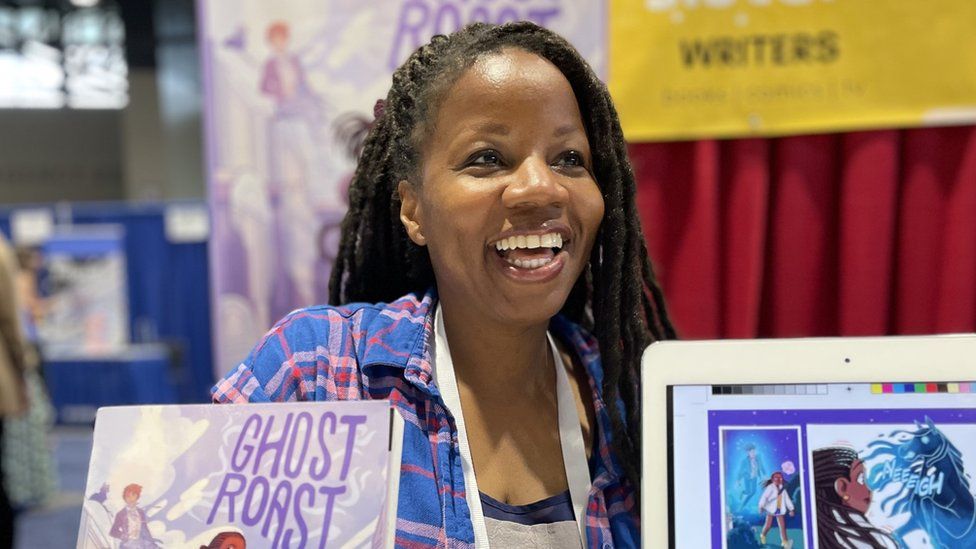
“It is important for us to advocate for human storytellers now, so that there is an industry left for future creators later,” says Shawnee. “This is an incredibly unique medium [comics and animation] that gets its DNA from the collaboration of writers and artists. I can’t imagine that kind of synergy when you generate stories from AI.”
However, her sister Shawnelle says she is “sure AI will change the industry in ways we can’t even fathom at the moment”.
She wants to see “legislation emerge that protects human creators as AI technology evolves”. At present there is little definite in this area, but Californian governor Gavin Newsom is now investigating the issue.
Meanwhile, US authorities ruled last year that the images in an AI-created comic book could not be copyrighted.
The Gibbs sisters are members of Women In Comics Collective International, an organisation that supports female comic book writers and illustrators. It was established in 2012 by US comic book writer Regine Sawyer.
“We discuss the use of AI in our panel discussions, and will continue to do so,” says Ms Sawyer. “Our members are very concerned. We want to be very clear about our stance on how AI is used in the comic book industry.”
Their stance is that AI is a great tool for research, but not as a creator of material. “When it’s used to replace creators, therein lies the problem,” she adds.
Dave Jesteadt, is president of GKids, a US company that produces and distributes animated films. He agrees that the use of AI should be limited to an assistant role, but that he has yet to see this done successfully. “To the extent that AI can help individual creators as a tool, I look forward to seeing positive examples in the years to come.”
Rob Edwards is a screenwriter of animated movies and writer of graphic novels. His film work includes co-writing the script for the Oscars-nominated 2009 film The Princess And The Frog. He fears that AI will deprive both comic books and animations of their inventiveness.
“A world of writers using AI is a world of derivative, recycled, impersonal ideas,” he says. “Right now, there’s a kid out there drawing the next weird but innovative comic book that could inspire millions. My concern is that AI will talk that kid out of it before anybody sees it.
“If you think the animated movies you watch are predictable now, just wait until computers are writing them.”


While established players in both the comic book and animation sectors are understandably concerned about AI, there has been a big growth in AI-powered comic book and animation creation apps aimed at the home user.
For animation these include Animaker AI, Blender, Cascader and Deepmotion. While for comic book creation, apps include Comics Maker, AI Comic Factory and Neural Canvas. They make promises such as allowing users to create “jaw-dropping comics”, or that “any person can now create a studio quality animated video in an instant”.
One person who has created comic books whose images were all drawn by AI is New York-based artist Steve Coulson, and his five-part The Bestiary Chronicles. He says that using AI to create individual images “can be a pretty simple exercise”.
However, he says that when you want to tell a story over multiple images, it “is a tougher nut to crack”, as you have to “coax the system to produce consistent characters, settings, stylings, etc, in order to tell a cohesive story”. Yet he adds that this will “no doubt” become easier as AI-powered systems are enhanced.
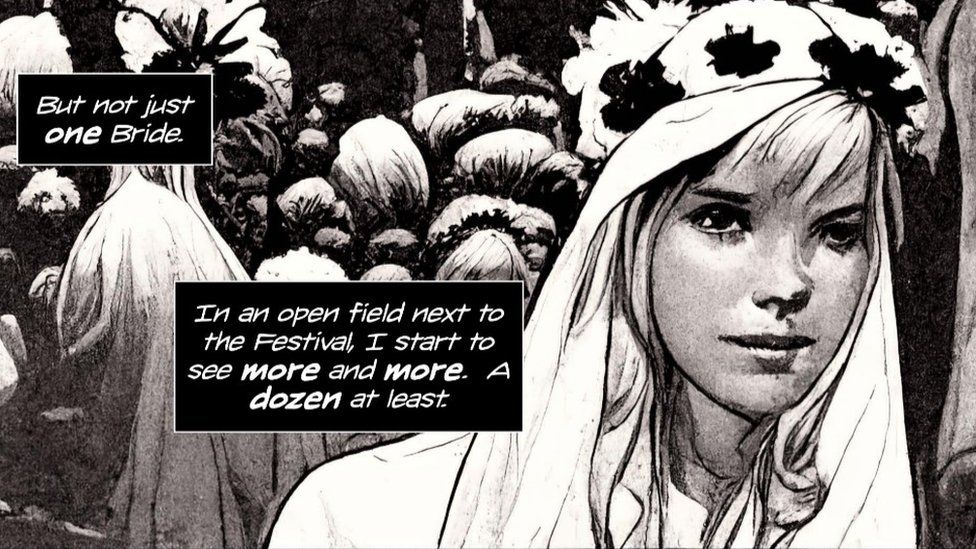
Despite the growing popularity of all these apps, Jonathan Kendrick, co-founder and chairman of global streaming service Rokit Flix, says that AI is not yet good enough to be a threat to professional comic book creators and animators.
“AI cannot create an image the way a human mind can,” he says. “It’s like having a bad writer help you – sure it will get an outline done, but if you need something with emotional weight, an AI isn’t going to get you an Oscar.
“AI can never surprise us in the way we want our stories and art to be portrayed. Because of this, AI is simply a tool to be used by humans, not to replace them. Otherwise, we sacrifice the originality and creativity that consumers know and love.”
Additional reporting by Will Smale.
Related Topics
-
-
15 October 2014
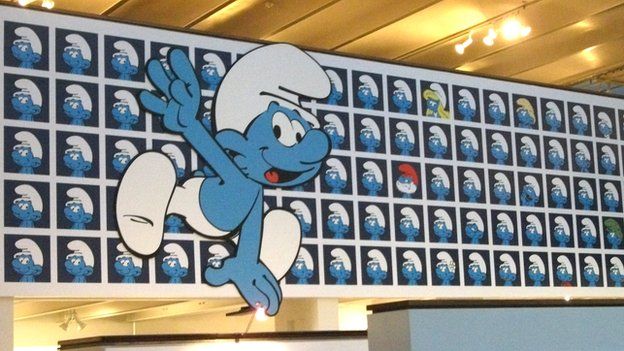
-
